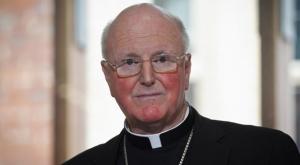The issue of pedagogy, how to teach what is being taught, must permeate every course in the semianry curriculum. Otherwise the pastoral ministry will continue to become the adjunct magisterium for an impotent and declining church.
As seminaries and seminarians consider how to engage the real religious diversity of the Nones they face some pretty serious issues with communicating about both scripture and its authority to shape community life.
When I graduated from seminary in 1982 we had been given a relatively thorough grounding in classical Biblical criticism. We understood the importance of textual criticism, historical context, and form criticism (or more broadly literary criticism and the identification of genres.) And we understood that the authority of our interpretation of the text hinged on our engagement in classical Biblical criticism. This alone placed our teaching in the structures of authority of modern society.
Most of our congregations didn’t know much about exegesis, but classical Biblical criticism did fit with common sense understandings of language and communication honed through the modern period. It wasn’t difficult to convey to a lay people that they needed to make sure they had the right text, a good translation, an understanding of the context, and could identify the form of communication being used. Examples from daily life abounded. And at its root the authority of the text depended on the simple proposition that God’s word through the Bible was comprehensible, and that when God spoke God’s words naturally had authority.
This meant that we should have been able to address the concerns of congregations shaped by literalist assumptions in relatively straightforward ways. We could show that we took the Bible seriously even if, and indeed because, we didn’t take it literally. And I believe that many of us did, if we could get over our reflexive engagement in the “culture wars.”
But already on our horizon (have moved steadily westward from their birthplace in Europe) were the ideas of Wittgenstein and Derrida and a host of others. Beginning (in my recollection with feminist theory) we were going to learn that language was not simply a tool for communicating ideas. It was a creator and sustainer of oppressive social structures, a game that obscured us from each other as much as it revealed us to each other. It could never be merely interpreted. It would need to be endlessly deconstructed. And God who came to us as Word was, by the very act of supposed revelation, obscured.
In this new world reading the Bible with an intent to hear God’s word couldn’t even begin without a mastery of complex linguistic analysis wrapped in even more complex forms of social analysis. Most importantly, the scholarly life into which the seminary hoped to draw a future pastor/theologian/teacher became almost completely alienated from commonsensical (if naive) understandings of language and interpretation.
For those to whom the Bible was a formative document, one that mediated their experience of Christ and was the center of their spiritual life, these new movements appeared dismissive and even antagonistic. And famously difficult to understand.
This doesn’t mean that congregations should not be challenged concerning their naive use of exclusive language, or fail to see how systems of oppression were unwittingly perpetuated by naive readings of the Bible.
But over the last 40 years this seismic shift in scholarly understandings of how language resides in our Christian congregations has radically changed the balance between the pastoral tasks of interpreting the Word of God and the pastoral task of interpreting the theories of interpretation of Biblical scholars. To even begin to introduce to laypeople the things being taught in a theological school takes a sustained and often daunting pedagogical effort.
And it must do this with real respect for Christians whose formative spiritual experience has been mediated by the Bible. Indeed, our theories of interpretation must account for that experience, and not simply imitate the latest fashions in linguistic and literary criticism.
And in any case the effort must be undertaken in the immediate context of financial crisis, congregational decline, and rapid demographic change. And, one might add, largely without the help of senior ecclesial and lay leaders whose theological education scarcely touched on linguistic analysis and critical theory. It must be undertaken when it is clear that growing congregations are listening and responding to preachers who have eschewed all such theory in favor of an appeal to straight forward commonsensical approaches to language and interpretation.
Of course it can be done. But it will require that pastors, the church leaders who oversee them, and the seminaries that train them understand that the most important challenges facing a pastor today are not just theological. They are pedagogical. They are not so much problems of interpreting God’s word as interpreting the act of interpreting God’s word to its readers in the pews.
The implications for our seminaries? The issue of pedagogy, how to teach what is being taught, must permeate every course in the curriculum. Otherwise the pastoral ministry will continue to become the adjunct magisterium for an impotent and declining church.











